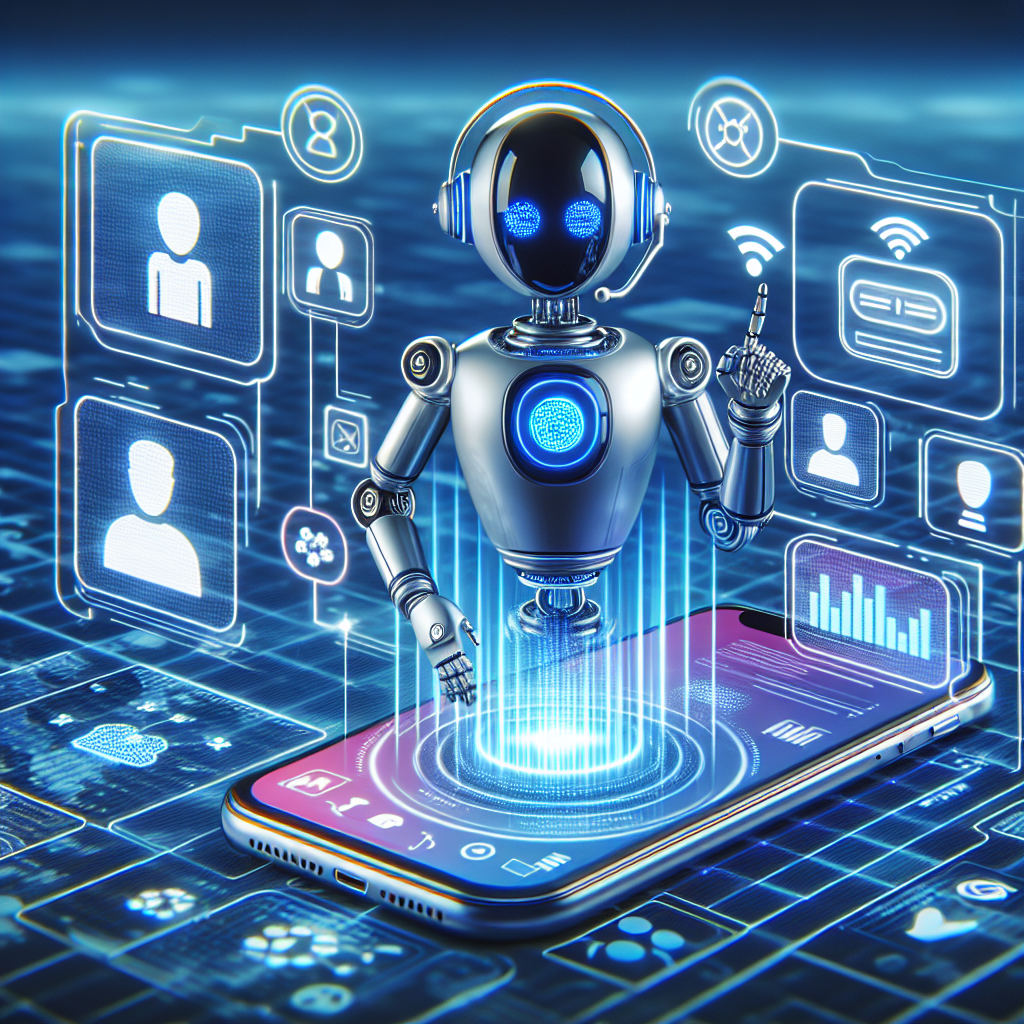AI Chatbots: The Ultimate Customer Service Assistants
In today’s fast-paced digital world, customer service has become more important than ever. With the rise of e-commerce and online businesses, customers expect instant responses and round-the-clock support. This is where AI chatbots come in as the ultimate customer service assistants.
What are AI Chatbots?
AI chatbots are computer programs that use artificial intelligence to simulate conversations with users. These chatbots can understand natural language and provide responses in real-time, making them ideal for customer service applications. They can be integrated into websites, messaging platforms, and social media channels to provide automated support to customers.
How do AI Chatbots Work?
AI chatbots work by using natural language processing (NLP) algorithms to understand and interpret user input. They are trained on large datasets of conversations to learn how to respond to different queries and requests. When a user interacts with a chatbot, it analyzes the input and generates a relevant response based on its programming.
AI chatbots can handle a wide range of tasks, from answering simple questions to providing personalized recommendations and troubleshooting technical issues. They can also be programmed to escalate complex inquiries to human agents for further assistance.
Benefits of AI Chatbots for Customer Service
AI chatbots offer several advantages for customer service operations, including:
1. 24/7 Availability: AI chatbots can provide instant responses to customer queries at any time of the day or night, improving customer satisfaction and reducing response times.
2. Scalability: Chatbots can handle multiple conversations simultaneously, allowing businesses to efficiently manage high volumes of customer inquiries without increasing staffing costs.
3. Cost-Effective: Implementing AI chatbots can help businesses reduce customer service costs by automating repetitive tasks and streamlining support processes.
4. Personalization: Chatbots can provide personalized recommendations and tailored responses based on customer preferences and past interactions, enhancing the overall customer experience.
5. Improved Efficiency: AI chatbots can quickly resolve common customer issues and route complex inquiries to human agents, freeing up valuable time for support teams to focus on more critical tasks.
6. Data Insights: Chatbots can collect and analyze valuable customer data, such as frequently asked questions and customer preferences, to help businesses improve their products and services.
Common Use Cases for AI Chatbots
AI chatbots can be used in a variety of customer service scenarios, including:
1. Order Status Inquiries: Chatbots can provide real-time updates on order status, shipping information, and delivery estimates to customers.
2. Technical Support: Chatbots can troubleshoot technical issues, provide step-by-step instructions, and offer solutions to common problems.
3. Product Recommendations: Chatbots can suggest products based on customer preferences, previous purchases, and browsing history.
4. Booking and Reservations: Chatbots can assist customers with booking appointments, making reservations, and scheduling services.
5. FAQ and Knowledge Base: Chatbots can answer frequently asked questions, provide information about products and services, and direct customers to relevant resources.
6. Feedback and Surveys: Chatbots can collect customer feedback, conduct surveys, and gather insights to improve customer satisfaction.
FAQs about AI Chatbots
Q: How accurate are AI chatbots in understanding user input?
A: AI chatbots are continuously improving their natural language processing capabilities to accurately understand and interpret user input. While they may not be perfect, they can handle a wide range of queries and provide relevant responses based on their training data.
Q: Can AI chatbots replace human customer service agents?
A: AI chatbots are designed to augment human customer service agents, not replace them. While chatbots can handle routine inquiries and repetitive tasks, human agents are still essential for resolving complex issues, providing empathy and emotional support, and handling unique customer interactions.
Q: How secure is customer data when interacting with AI chatbots?
A: Businesses must ensure that AI chatbots comply with data privacy regulations and implement robust security measures to protect customer data. Encryption, access controls, and regular security audits can help safeguard sensitive information and prevent data breaches.
Q: How can businesses measure the effectiveness of AI chatbots in customer service?
A: Businesses can track key performance indicators (KPIs) such as response times, resolution rates, customer satisfaction scores, and cost savings to evaluate the effectiveness of AI chatbots in customer service. Continuous monitoring and feedback from customers can help businesses optimize chatbot performance and enhance the overall customer experience.
In conclusion, AI chatbots are the ultimate customer service assistants that can revolutionize the way businesses interact with their customers. By leveraging artificial intelligence and natural language processing technologies, chatbots can provide instant, personalized, and efficient support to customers, improving satisfaction levels and driving business growth. As the technology continues to evolve, businesses can expect AI chatbots to play an increasingly vital role in enhancing customer service operations and delivering exceptional experiences to customers.

